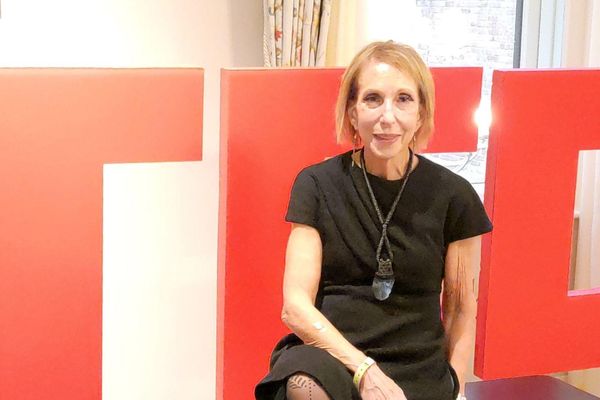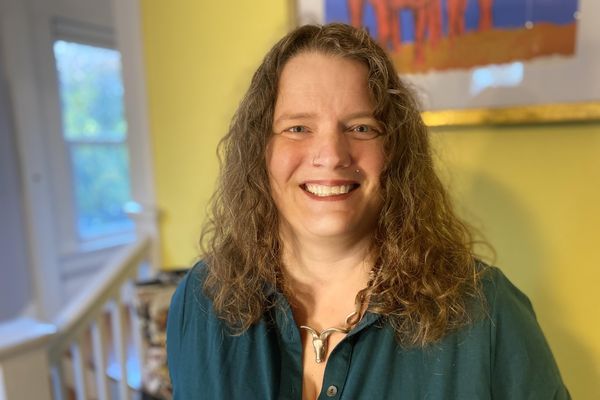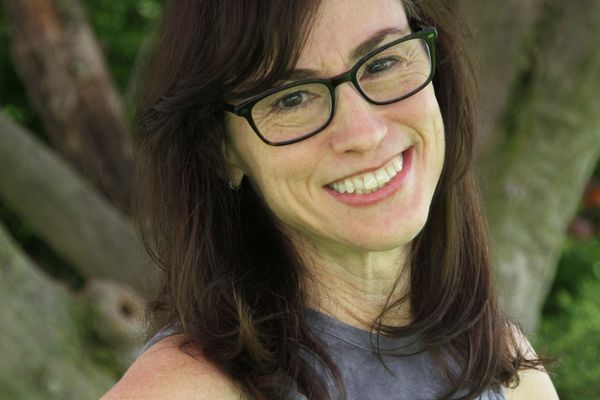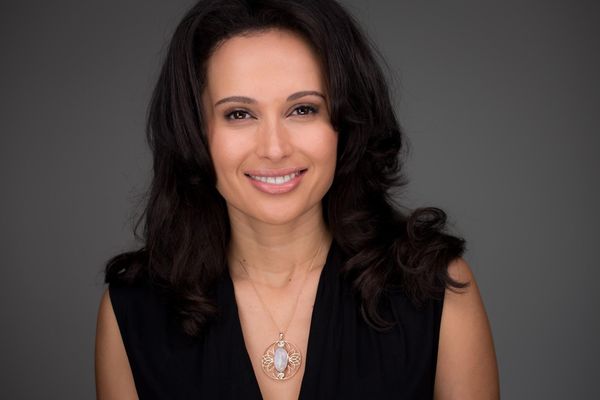When you think of eating disorders, you probably think of young, white, teenage girls. But women in midlife struggle with eating disorders such as anorexia nervosa, bulimia nervosa and binge-eating disorder, too. In fact, 13% of women over 50 experience symptoms of an eating disorder. We recently spoke with Betsy Brenner, a mentor with the National Association of Anorexia Nervosa and Associated Disorders (ANAD) to find out more.
The interview has been edited for clarity and length.
HealthyWomen: It's surprising to learn that midlife women have eating disorders because we almost never hear about it. Can you shed some light on the phenomenon?
Betsy Brenner: There really needs to be more education and awareness because most people who know very little about eating disorders just assume it's young white, adolescent girls, but eating disorders do not discriminate. You can't tell by looking at someone that they have an eating disorder. Eating disorders come in all shapes and sizes, ages and genders.
There are more and more women in midlife who suffer, and I think more of them suffer in silence. There's a greater degree of shame with women in midlife because there's this thought that they should know better or, "What's the problem? Just eat." And so I think younger women and younger people in general are more likely to get help. They may have parents who see that something is wrong, whereas so many women in midlife are caregivers: They're taking care of their families, they're parents, and they lose themselves in the process.
A lot of them either don't have the time to get help or feel they don't deserve to get help.
One of the biggest misconceptions is that disorders are a choice, but eating disorders are a brain-based mental illness. It's never someone's fault that they have an eating disorder. It is a choice to work on recovering, but nobody chooses to have an eating disorder. I think with adult women, there is this feeling that somehow they can just make it go away, and that's not the case. The behaviors with food are just the symptom and the eating disorder behaviors are what's there in plain sight, but they represent something going on deep below the surface and often co-occur with other mental health issues, like anxiety or depression or substance abuse and types of anxiety disorders; it's rarely just the eating disorder.
HealthyWomen: Are there certain risk factors for eating disorders?
Betsy Brenner: There are definitely certain personality traits. Eating disorders have a genetic component, a psychological component, and an environmental component, but certain personality traits can predispose you (though it doesn't always mean you're going to have an eating disorder). For people who are very driven and perfectionistic, sometimes controlling behaviors with food become a coping mechanism when they feel out of control or aren't perfect, and illnesses such as anxiety — specifically OCD — can just make those behaviors worse.
HealthyWomen: Is it more difficult to get the help you need the longer you have an eating disorder?
Betsy Brenner: I think the earlier the eating disorder is diagnosed, and the sooner a person suffering has access to the treatment they need, the easier it is to become fully recovered. It doesn't mean that recovery is going to be easy. They've just had fewer chapters in their lives and they're still developing, so it's easier to get at the root of the eating disorder.
Eating disorders are about what's underneath, what are you using that eating disorder to numb? Often, it's difficult emotions and trauma. So women in middle age have more likely had more things happen to them, more chapters in their lives, more trauma, more things that they either haven't addressed in a healthy way or come to terms with.
There are women who had an eating disorder when they were younger, recovered, and then something happens at midlife and they relapse. They go back either as a result of divorce or loss or a changing body or an empty nest. Those are typical triggers in midlife, but there are others who develop an eating disorder for the first time at midlife. It can be again from one of those reasons, or there could be a new trigger or an old trigger that's revisited.
I think women in midlife are less likely to get the treatment or the treatment is less likely to be successful as quickly. I mentor several women in midlife, and I hear the same thing over and over: They've been to treatment centers, and it doesn't help them in the same way because they feel like they're old enough to be everybody's mother. So they don't feel comfortable. I think there's a dire need for treatment programs that focus exclusively on women, say 45 and older because — yes, 35 and older, you're certainly different from an 18-year-old — but there's a big difference between the stage of life for a woman who's 55 and a woman who's 35. Of the women that I mentor, if they were to go to treatment, they wish it could be with people their own age and stage in life. There's certainly treatment out there for women in middle age, but I think you have to differentiate between the different stages of adulthood.
HealthyWomen: Has there been an increase in eating disorders diagnosed due to COVID-19?
Betsy Brenner: There has definitely been an increase in eating disorders, and I'm sure there are more relapses from people who were doing well. COVID has brought so much stress and isolation and loss that again, eating disorders are a way of coping with. So anyone who either has an eating disorder or is prone to an eating disorder feels very isolated. Help lines have been inundated with calls. The treatment is now mostly virtual, and that doesn't help. It's certainly beneficial and necessary to have telehealth appointments, but it's not the same as having that in-person connection that can really help recovery along.
HealthyWomen: Is anyone ever cured of an eating disorder or is someone always in recovery once they decide to get help and begin that journey?
Betsy Brenner: That's an interesting question. Usually the word cured isn't used, it's more likely recovered versus in recovery. Many, many people say, I totally recovered. And others, it's more on a continuum. The way I like to look at it is, recovery is learning about using healthy coping mechanisms and managing stress rather than resorting to eating disorder behaviors. I think those who are fully recovered, they may never have to deal with eating disorder thoughts or behaviors again. But I think no matter how strong your recovery is, you need to be aware that life isn't always going to be sunshine and rainbows. Stressors are always going to happen. And you have to use the tools that you learn through the recovery process to make sure you manage life's stressors and challenges in a healthy way so you don't go back to the eating disorder. That being said, I would say relapses are very normal; they're very common. Recovery is not a linear process. It's something people have to manage, like you would manage any other illness that is chronic.
I have recovered from an eating disorder in midlife that was a result of years and years of suppressing emotions through difficult experiences that I had, and I actually have a book that's being published. It will be out at the end of April, and it's called "The Longest Match: Rallying to Defeat an Eating Disorder in Midlife." It's specifically aimed at women in midlife — and my message is it's never too late to be a work in progress.
Resources:
National Eating Disorders Association (NEDA)
NEDA Helpline
National Association of Anorexia Nervosa and Associated Disorders (ANAD)
Multi-Services Eating Disorder Association (MEDA)
- Thanksgiving Will Always Be Difficult For Me. Here’s How I Cope. - HealthyWomen ›
- I Struggled With Obesity. Then I Lost the Weight … and Nearly Died From Anorexia and Bulimia. - HealthyWomen ›
- Facts About Having an Eating Disorder in Midlife - HealthyWomen ›
- I Had An Eating Disorder for 20 Years - HealthyWomen ›







